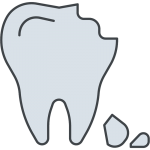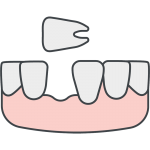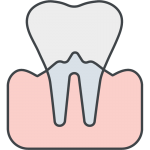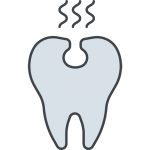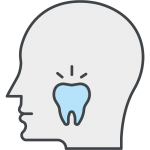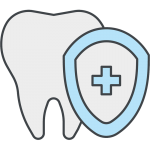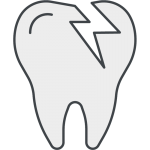Comprehensive Examination
Strong Healthy Teeth Begins with us
Why is it Important to Visit the Dentist Regularly?
At Aperture Dental Practice, we believe that regular dental visits can prevent dental health issues and maintain good oral and overall health.
🔼 Why are regular dental check-up’s important?
How often should I have a dental check-up?
The condition of your teeth and oral health can determine the number of times you visit the dentist. Patients who have very good oral health are at low risk of dental issues and may only need to visit the dentist every 6 to 24 months.
People who are at high-risk of dental problems will need to visit the dentist as often as their treatment lasts, or as recommended by the dentist.
People who are at risk could include:
- People who smoke.
- People who do not take care of their teeth or eat too many sugar-based foods.
- People with gum disease, plaque build-up or diabetes.
- People with a weak immune response to bacterial infection.
Problems that can be avoided or attended to immediately with regular dental check-ups:
Tooth Decay
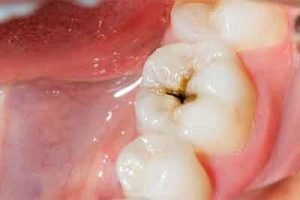
Tooth decay is caused by poor oral hygiene and habits, as well as by eating foods containing high amounts of sugar. It can lead to pain if not treated early.
Plaque
Plaque is caused by harmful bacteria that remain on the teeth if it is not cleaned properly. Over time, the accumulation of this bacterium on your teeth and gums can slowly start damaging it.
Gum Disease
Gum disease can cause your gums to become red, painful, swollen and sensitive when eating, biting or chewing.
Oral Cancer
Early detection improves prognosis and outcomes. Oral cancer sometimes mimic an ulcer; appear as a red/white patch or a firm swelling.
Crooked teeth and bite abnormalities
In children, teeth crowding and/or bite abnormalities are often a sign of sub-optimum jaw development. This is sometimes linked to disordered breathing or other health conditions. Correcting these issues are simpler with a higher chance of best outcomes when children are younger.
What happens at my appointment?
At your first appointment, we will gather some information about you, including your personal details, medical history and specific dental problems you may have.
In a comprehensive examination, we check all of the following:
- Teeth (decay, tooth wear, crowding, existing fillings, gaps, mobility, missing)
- Gums (recession, bleeding, plaque, calculus)
- Surrounding structures (tongue, cheeks, lips, palate, throat)
- Jaw joints and muscles (clicking, pain, tenderness)
- Smile assessment (tooth shape, size and shade, smile line, gingival biotype)
- Existing appliances and prostheses (dentures, crowns, bridges, implants, orthodontic retainers, braces)
- Signs of oral diseases and oral cancer (ulcers, white spots)
We may need to take some photos and x- rays of your teeth as a baseline, and also to make sure we don’t miss out on anything underlying the tooth.
We will provide you with a personalised treatment plan which includes any treatment you need and the exact cost.
The whole process should not take more than 40 minutes, although we do allow more time for discussion or further treatment if needed.
Your Complimentary Wellness Scan using the High-Tech iTero Digital Scanner:
Oral Health FAQs
A quote that dentists love to recite is “you only need to floss the teeth you want to keep!”
Flossing is necessary when it comes to good oral health as it will remove the bacteria build up from in between your teeth. Without removing this, the build up can progress to create cavities and gingivitis.
You should set aside at least two minutes in the morning and two minutes in the evening for brushing. This is a total of four minutes that you should be spending daily to adequately clean your teeth.
While some mouthwashes serve no purpose other than freshening your breath, certain mouthwashes can be the cherry on top of your brushing routine. Look out for mouthwashes that include chlorine dioxide as these can help kill the bacteria in your mouth.
If you are experiencing anxiety, simple breathing exercises can help ease your nerves before a dental appointment. Take a deep, slow breath in through your nose lasting close to 5 or 6 seconds. Hold for a few seconds, and breathe out slowly through your mouth, taking close to 7 seconds (breathe out like you’re whistling). Repeat 10 times.
Foods that contain high levels of sugar have been known to increase the chances of tooth decay. The same can be said for starchy foods and acidic sports drinks and soft drinks.
We’re sure that you remember being told during childhood how milk can give you strong bones and teeth. This is true due to the high calcium levels found in dairy products such as milk, cheese and yoghurt. Calcium is shown to improve the strength and health of your teeth.
Dental phobia and dental anxiety are similar but are actually two very different things. Dental phobia is characterised by an irrational fear and panic regarding any dental setting (dentists, dental tools, dental offices, etc.). Whereas dental anxiety refers to a general nervousness and unease when confronted with a dental issue. Dental phobia is a recognised mental health problem and those who suffer from it will completely avoid going to the dentist and may experience panic attacks when forced to face it. If you are just nervous or experience mild dental distress at the dentist’s office, then you are most likely suffering from dental anxiety.
This depends on how severe your dental anxiety actually is. If you experience mild anxiety or worries, your dentist will most likely use laughing gas to help keep you relaxed; if you suffer from severe dental anxiety, then your dentist can put you to sleep using anaesthesia, so you are completely unconscious for the procedure.
Dental Check-Up Sunnybank Hills
Is it time for your next dental examination? Request an appointment with us today! We are happy to assist you with all your dental needs.
Contact Us
Contact us today to talk about our range of complex, cosmetic and general dentistry. Our friendly Aperture Dentists Sunnybank Hills team will be in touch with you soon. We are conveniently located to service patients living in surrounding areas, including Calamvale, Acacia Ridge, Runcorn, Coopers Plains and Kuraby. We are just a short drive for patients looking for a Dental Clinic in Sunnybank, Mt Gravatt and Macgregor regions.


